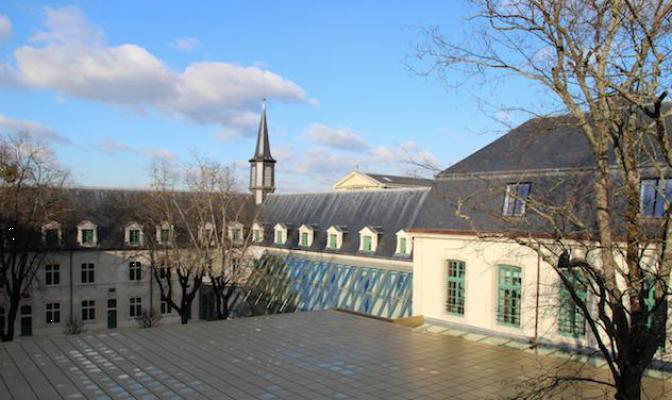



Taking part in a student exchange program is one of the ‘five things you should do in university.’ During the fall semester of 2016, I participated in an exchange program offered by the School of Humanities and Social Sciences. My host institution was the Institut d’études politiques de Paris, or SciencesPo, in France. Instead of studying in Paris, the renowned French capital, my destination was Reims, a city 45 minutes away by high-speed train from Paris, and also the center of the Champagne production region in France.
SciencesPo is one of the best schools in the field of Politics and Social Science. HKUST, on the other hand, is one of the leaders in Science and Technology. On the surface, this is the biggest difference between these two universities. The reality is, there are more differences between these two universities in other aspects. For example, on the second day of the introductory week (the fourth day after my arrival in Reims), I was required stand next to the city cathedral and give a speech about it. This was out of my expectation as I barely knew anything about the cathedral; however, I managed to complete the task. This experience was totally new to me as I had never given a speech in a public venue. As I later realized, SciencesPo puts a great emphasis in logical thinking and presentation skills, which is different from the teaching style of HKUST. In terms of teaching style, most of the courses offered at SciencesPo are seminar lessons, in which students are required to prepare for every class and be ready to take part in class discussions with other students, and the professor supervises the discussion. During the discussion, the professor will focus more on the development than on the content of a student’s point. The advantage of this style is that students are encouraged and incentivized to self-learn.
Cultural exchange is prevalent at SciencesPo. Half of the students at the Reims campus are exchange students. During my exchange, I met students from all over the world. My classmates in the French language course came from many different countries like Brazil and Mexico. In another class, I met a classmate Tamara, who was enthusiastic about going to Hong Kong for her exchange program. I introduced HKUST to her and she later decided to put HKUST as her preferred school in her application. There was also a lot of interaction between teachers and students. For example, teachers would invite students for drinks or gatherings at the end of the semester, fostering bonds that are more like friendships than formal teacher-student relationships.
I gained a lot during the exchange trip. Firstly, I learned the very basics of the French language. As the majority of the French population speaks only French, it was essential for me to understand some French in order to communicate with the people around me. Although the teaching language in SciencesPo is English, the school offers French language course to exchange students. Under the school’s intensive training, my French improved a lot. Secondly, I found that I became more outgoing after the exchange program. I am now confident to start a conversation with people I don’t know, even in French (although my vocabulary is weak). The biggest benefit from this exchange experience is that my awareness about the society has greatly increased. The teaching style in SciencesPo emphasized on application of knowledge in the real world, which made me begin to rethink the purpose of attending university – is it for my career development or for making use of my knowledge to benefit the society?
All in all, going on an exchange trip is not an easy task, but it can also be a good opportunity to step out of one’s comfort zone. ‘A journey of a thousand miles begins with a single step,’ it is not guaranteed that an exchange experience will be easy, but it is guaranteed that it will be fruitful and unforgettable.